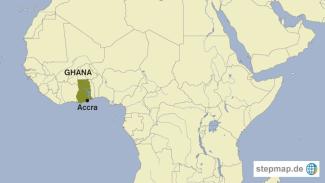Infrastructure
Tracks towards the future

The project is a first for Ghana in several ways. It is the first time Ghana’s railway will link directly with that of a neighbouring country, and the first time an integrated rail network will extend along the country’s full length.
The planned railway line will run from the Port of Tema near Ghana’s capital, Accra, in the south to Ouagadougou, the capital of Burkina Faso in the north. The rail line is formally known as the Ghana–Burkina Faso Railway Interconnectivity Project.
Based on a 2017 agreement between Ghana and Burkina Faso, the rail line will run for about 1,200 kilometres. The estimated construction cost is US $ 2.2 billion.
The Ghana portion of the line will extend from Tema in the south to alongside Lake Volta, a long north–south inland waterway in south-central Ghana. From there it will continue along the eastern side of the lake to Nkwanta near the Togo border, to Yendi in the northeast, Tamale in the north-central area, and on to Paga on the Burkina Faso border.
The new north-south line is part of a larger infrastructure plan that calls for increasing Ghana’s rail network to 4,009 kilometres over 33 years with an estimated investment of $ 21.50 billion.
It is an ambitious project for a country whose rail infrastructure has seen little improvement since national independence in 1957. The country’s railways have deteriorated so badly that much of the existing 940 kilometres of narrow-gauge track is out of service.
The north–south Interconnectivity Project aims to link agricultural lands to markets and to the port, as well as improving access to cities, schools and health centres along the route. Ghana’s Ministry of Railway Development hopes the new line will trigger other new infrastructure development.
At a minimum, the ministry says, the new line is expected to make transport of passengers and goods more efficient and create an estimated 30,000 jobs.
The new rail line is intended to boost trade between Ghana and Burkina Faso and to lower the price of goods traded by making transport faster and cheaper.
“The railway will relieve the congestion and stress on the roads,” says Naa Shormei, a teacher in a community along the route. “Farm produce will be transported more easily, and we will not see the overloading we often see on vehicles carrying crops.”
“If this plan is put in place the whole ‘food basket’ of Ghana will be linked by rail, and this will dramatically reduce food prices,” says Evans Ago Tetteh, a lecturer at Ghana’s Regional Maritime University in Accra.
While the sponsors of the project have high hopes for it, not everyone is happy. Several communities and property owners along the planned rail corridor complain they have not been compensated for damage caused by the construction to their homes, businesses, water sources and farmlands.
One of those firms is Accra-based Tropo Farms, a major supplier of tilapia fish. It says the railway construction has blocked access between its fisheries and a big processing plant on Lake Volta. “We are deeply concerned about job losses,” said Francis Zimmaleh, the company’s senior manager of corporate strategy. “We are facing daunting challenges.”
“We assure you that we are with you,” responded Mavis Hawa Koomson, Ghana’s Minister of Special Development Initiatives. “We encourage you to continue the good work you are doing.”
Dasmani Laary is a journalist in Ghana.
laarygna@gmail.com







